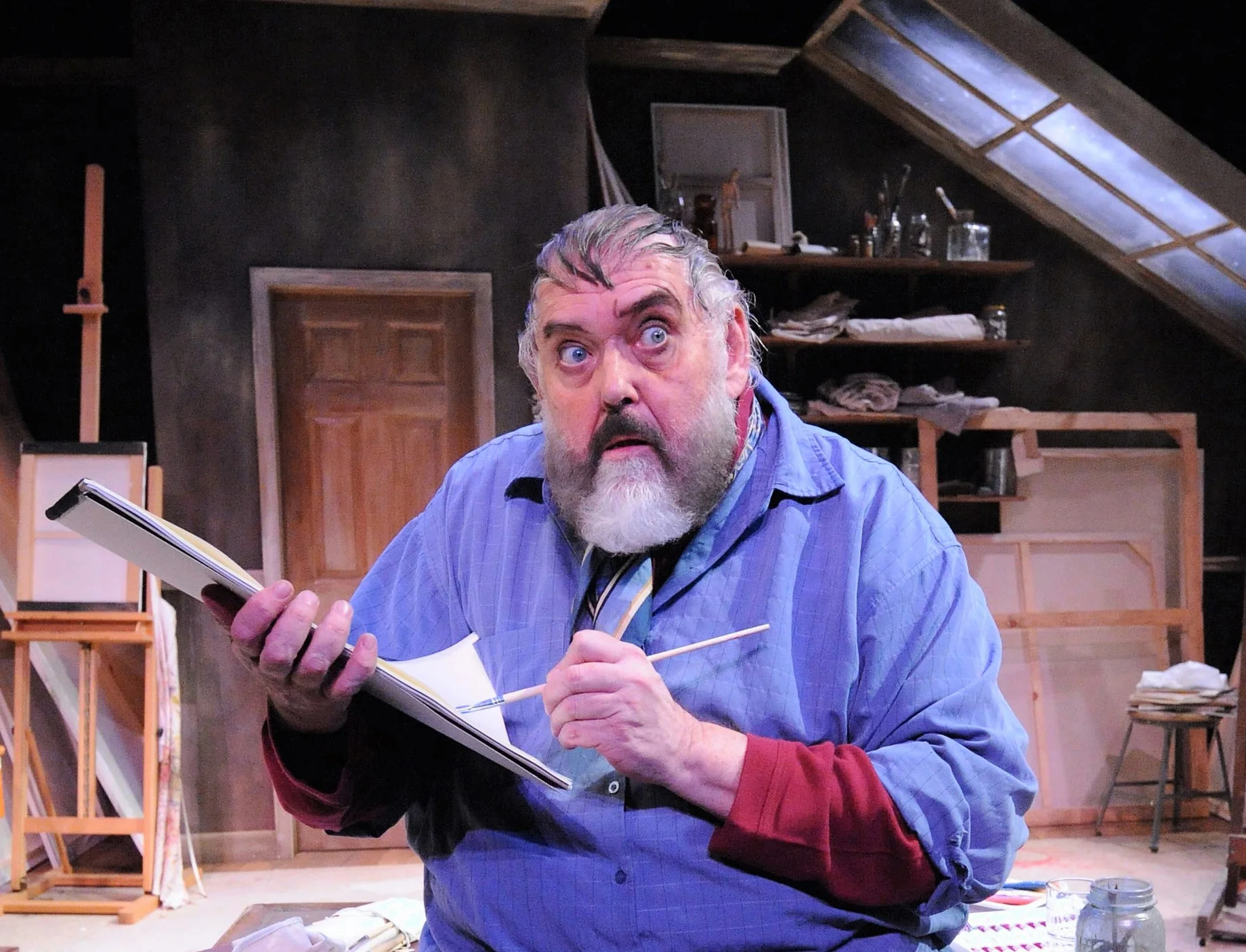When writer Rex Pickett was trying to get his novel Sideways published, he submitted it to film studios as well as book publishers. He has now adapted the novel as a play, but the story’s cinematic nature works against it on stage. Because there are so many scene changes, scenery is simplified to tables and chairs (and the occasional counter or bed) that can be hastily reconfigured to represent various homes, bars, restaurants and outdoor locales. But Sideways has such a strong sense of place—the Oscar-winning 2004 movie fueled a tourism boom for California’s Santa Ynez Valley, and a map of film locations is still available on the Santa Barbara visitors bureau website—that it’s shortchanged by many scenes looking similar and the same backdrop, a lone tree, remaining for the entire play. What scenic designer David L. Arsenault has created is okay (the multiple levels and a faux hot tub work well); it’s just not enough to evoke the landscapes and idea of traveling.
The Show-Off
The tension between a powerful social hierarchy and an unconventional hero, often an underdog, provides a frequent source of mid-20th-century American comedy. The friction arises in Mary Chase’s Harvey, Abe Burrows, Howard Teichmann and George S. Kaufman’s The Solid Gold Cadillac, Philip Barry’s Holiday, and Thomas Heggen and Joshua Logan’s Mr. Roberts. The sympathy for the heroes of those comedies is a foregone conclusion: they are on the side of the angels, as it were. But that’s surprisingly not the case in George Kelly’s The Show-Off, a hard-edged 1920s work admirably revived by the Peccadillo Theater Company. Kelly’s title character, Aubrey Piper, is a great creation, an annoying rascal and a liar, and one waits impatiently for him to get his comeuppance.
Zero Hour
Zero’s back in town, and the town is jollier for it. That’s Zero as in Mostel, in the ursine form of Jim Brochu, who has brought his one-man biographical show, Zero Hour, back to the Theatre at St. Clement’s. It won him a Drama Desk Award back in 2010, and in this new incarnation, if anything, the author and star is more formidable, more unpredictable, more voluble—more Zero.









